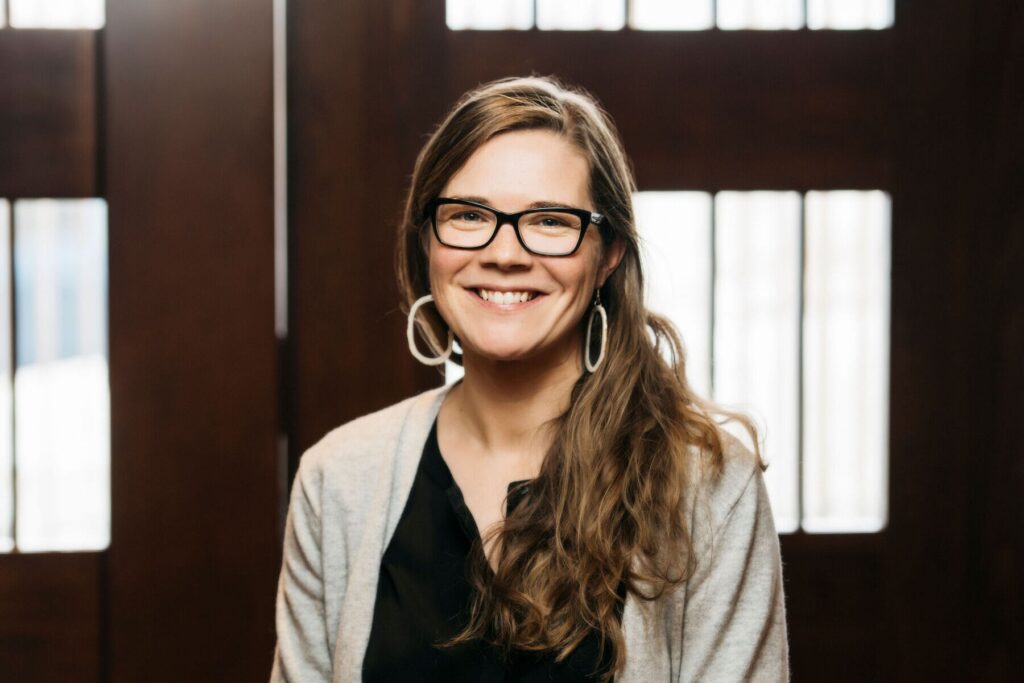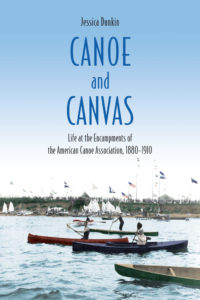
We are pleased to welcome social historian and writer Jessica Dunkin to discuss her newest book, Canoe and Canvas: Life at the Encampments of the American Canoe Association, 1880-1910, at the 2020 Wipper Lecture on February 2 from 2:30 until 4:30 p.m.
Dunkin will be in conversation with author and Director of External Relations James Raffan at this public event in the museum galleries. All are welcome to attend this donation optional event, but attendees are encourage to reserve a seat in advance.
“…I have long been an avid canoeist. For a good portion of my life, I gave little thought to the origins of the canoe or its implication in the settler colonial project called Canada,” states Dunkin. “Researching and writing about the canoe—first as a graduate student at Carleton University and now as an uninvited guest on Yellownives Dene land — has allowed me to better understand the complicated history of canoes and canoeing in this country, while also creating time and space to reflect on what it means to be a white settler paddler…”
Canoe and Canvas offers a detailed portrait of the summer encampments of the American Canoe Association between 1880 and 1910. The encampments were annual events that attracted canoeing enthusiasts from both sides of the Canada-US border to socialize, race canoes, and sleep under canvas. The subject of the book offers a perfect fit for the Wipper Lecture, which is named in honour of the late Kirk Wipper, the founder of the museum’s collection. In keeping with his legacy, the lecture focuses on themes of outdoor adventure, camps and canoeing.
“Jess Dunkin is one of the brightest young scholars to contribute to the cultural critique of canoeing in a long time,” says Raffan. “This book, her first, is informative, affirming, challenging, and full of thoughtful new insights into the essence of canoeing—an important addition to ‘canoelit.’ I’m really looking forward to welcoming her back to the museum and to having a grand chat.”
Dunkin is a friend of the museum and a member of our National Council, a group of distinguished individuals who are passionate about the work of the organization. She is a graduate of Trent University and earned her Ph.D. from Carleton University. Dunkin now lives in Yellowknife and works at the NWT Recreation and Parks Association, a non-profit organization that works with communities across the NWT to promote healthy families and communities through recreation. In 2018, she was appointed as a Research Associate at Aurora College and in 2019, she was appointed an Adjunct Professor in the Faculty of Kinesiology, Sport, and Recreation at the University of Alberta.
About Canoe and Canvas

Canoe and Canvas offers a detailed portrait of the summer encampments of the American Canoe Association between 1880 and 1910. The encampments were annual events that attracted canoeing enthusiasts from both sides of the Canada-US border to socialize, race canoes, and sleep under canvas. While the encampments were located away from cities, they were still subjected to urban logic and ways of living. The encampments, thus, offer a unique site for exploring cultures of sport and leisure in late Victorian society, but also for considering the intersections between recreation and the politics of everyday life.
A social history of sport, Canoe and Canvas is particularly concerned with how gender, class, and race shaped the social, cultural, and physical landscapes of the ACA encampments. Although there was an ever-expanding arena of opportunity for leisure and sport in the late nineteenth century, as the example of the ACA makes clear, not all were granted equal access. Most of the members of the American Canoe Association and the majority of the campers at the annual encampments were white, middle-class men, though white women were extended partial membership in 1882, and in 1883, they were permitted to camp on site. Canoe and Canvas also reveals how Black, Indigenous, and working-class people, while obscured in the historical record, were indispensable to the smooth functioning of these events through their labour.
Canoe and Canvas will be available at the museum store on the day of the event and Dunkin will be available for a signing after the lecture.






